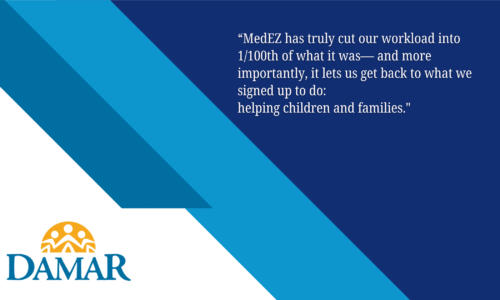The terms “EHR” and “EMR” are often heard in medical practices, but most people aren’t aware of their differences. Our company MedEZ™, as an EHR provider, frequently sees these terms used interchangeably and wanted to explain how they differ in the medical field.
There will always be an industry’s own vernacular, with terms that are used inside that are difficult for outsiders to understand but necessary for players to understand. In addition to categorizing professionals from non-experts, Jargon saves people time when writing and presenting various concepts.
What Are Electronic Medical Records and Electronic Health Records?
EMR stands for Electronic Medical Records, which are like paper charts at a doctor’s office in terms of digital format. A patient’s EMR normally contains information collected by their medical practices regarding their treatment and medical history.
Electronic health records EHR are also digital versions of patient charts. But, they provide a more comprehensive snapshot of the patient’s medical history. An electronic health record can be accessed by authorized users from multiple healthcare providers, which means the information can be shared with other doctors when needed.
What Are The Key Differences?
- An EMR is an electronic patient record that outlines a patient’s diagnosis and treatment.
- EMRs are not designed for sharing outside of a single practice, but EHRs are designed to share data across practices.
- Providers can use their EHRs across all authorized organizations.
- A patient’s whole medical history can be stored in the EHR. From childhood allergies to MRI scans at the end of life.
EHR data is stored in a discrete format that can be queried by the user for a variety of purposes. That includes decision-making and Evidence-Based Practice, also known as EBP. Additionally, EHR data can be converted to CCDA, known as Consolidated Clinical Document Architecture. CCDA is a comprehensive architecture for producing medical documents and templates. It’s principal purpose is to standardize the content and structure for clinical care summaries.
The behavioral and mental health industries should seek out EHR systems that align with their unique requirements in terms of core and advanced features as well as user and system requirements.
While selecting an EHR, the following five features should be fundamental to provide quality care:
- Care Coordination
In many cases, mental illness is a comorbid condition with other types of chronic conditions, such as obesity, diabetes, or cardiovascular disease. An EHR should enable seamless sharing of patient information across practices providing mental and behavioral health.
- Billing Coordination
In addition to coordinating care, EHRs that have practice management capabilities can diminish the administrative burden these practices face because of behavioral and mental health issues.
- Clinical Decision Support Tools
It is possible for practices to gain the benefit of clinical decision support tools that can: Collect clinical data, provide alerts and reminders, diagnostic support, clinical guidelines, patient focused reports and summaries, and provide reference information.
- Medication and Monitoring
In mental and behavioral health practices, since mental illness often accompanies physical illness, EHR capabilities are important as they let them monitor the medications their patients are taking and be alerted if a risk of adverse drug interactions exists.
- Patient Engagement
Patients can be more compliant with treatment by using an EHR that facilitates a free flow of information between them and their doctors. This is a crucial part of facilitating patients’ ability to participate actively in their care.
MedEZ™ is expert solution designed for Behavioral Healthcare and Substance Abuse facilities. By providing a specialty system, we align with the daily practices of our users and help them focus on important: Patient care, not paperwork. It is a comprehensive cloud-based EHR with billing, eligibility verifications, and integrated practice management. Request a demo of the best EHR today!
Written by Marina Malobabic for medez.com



